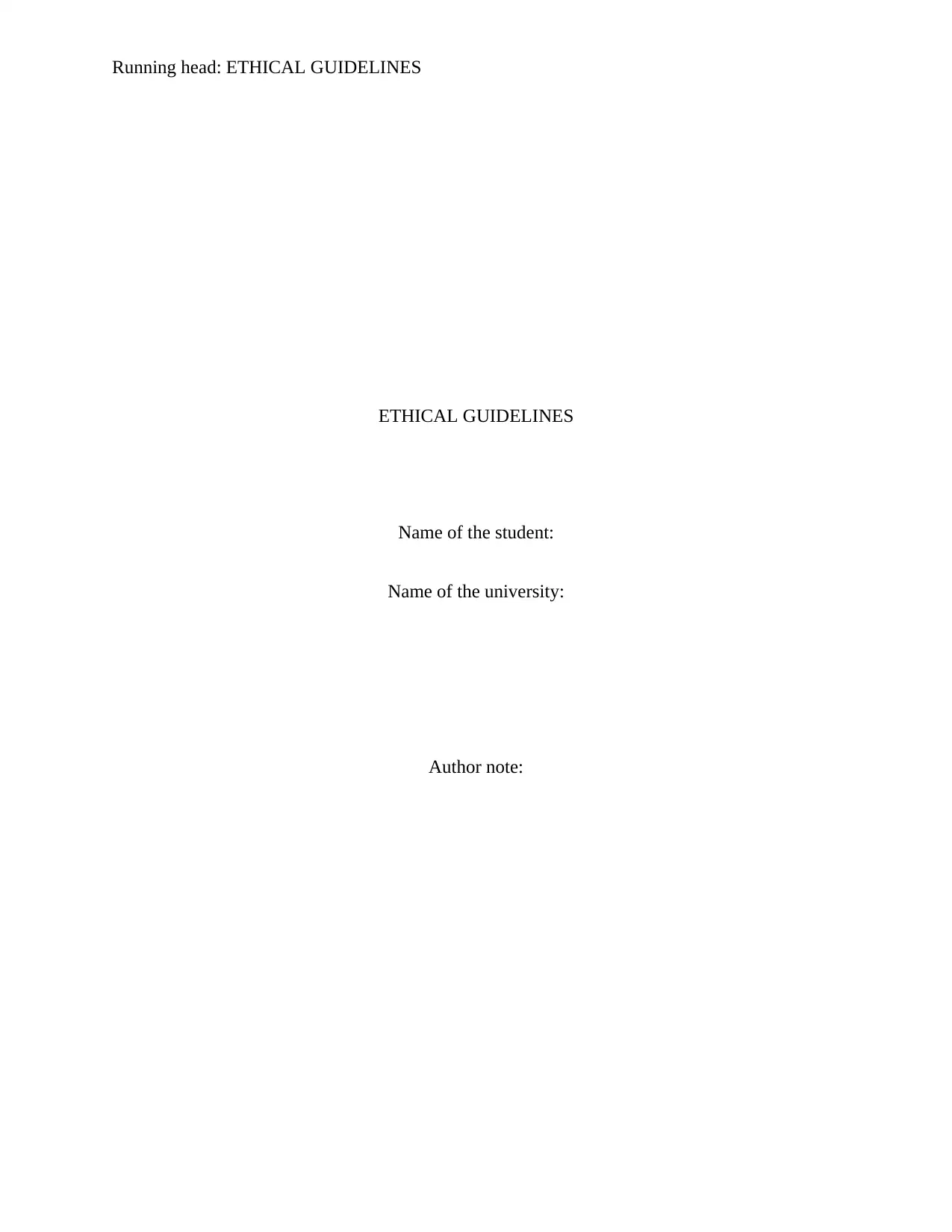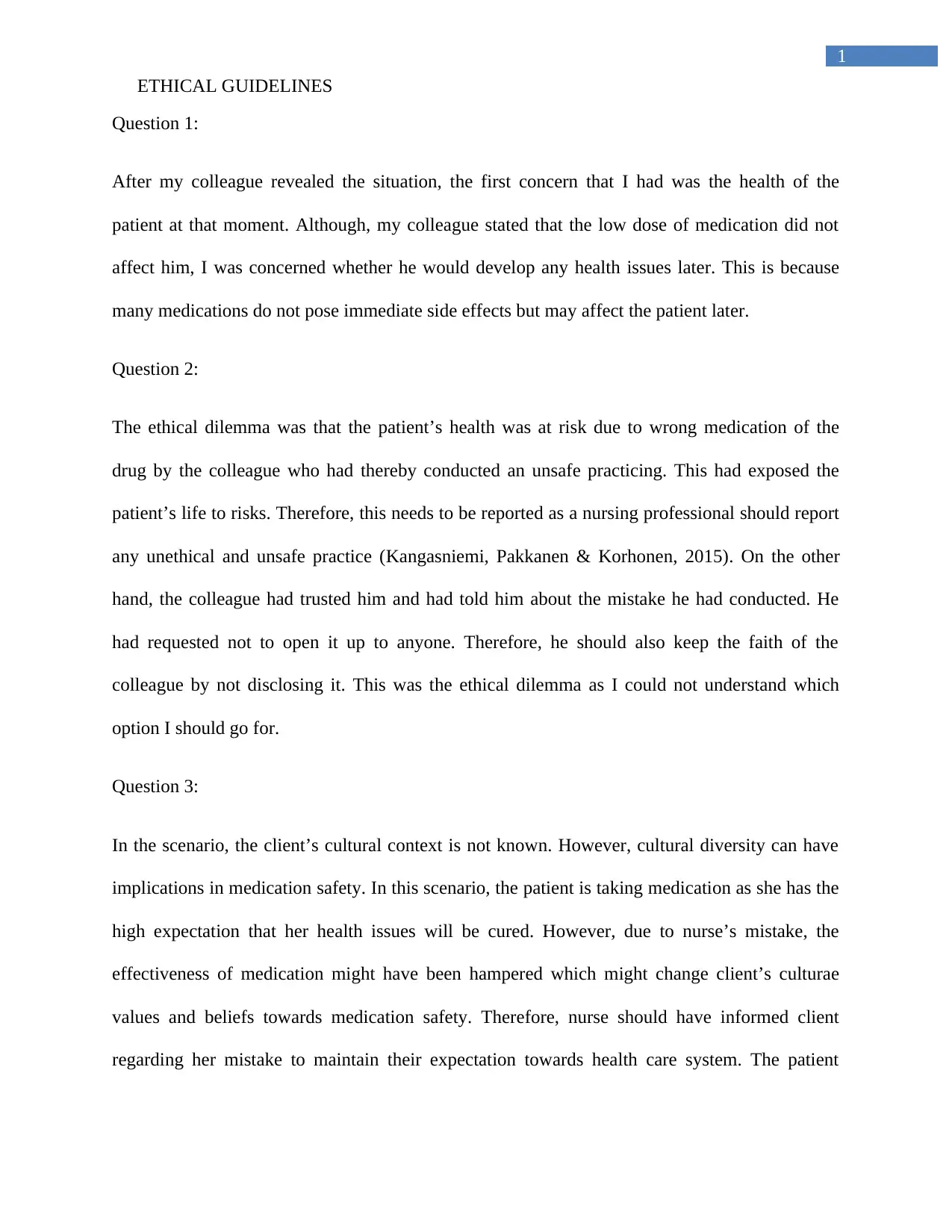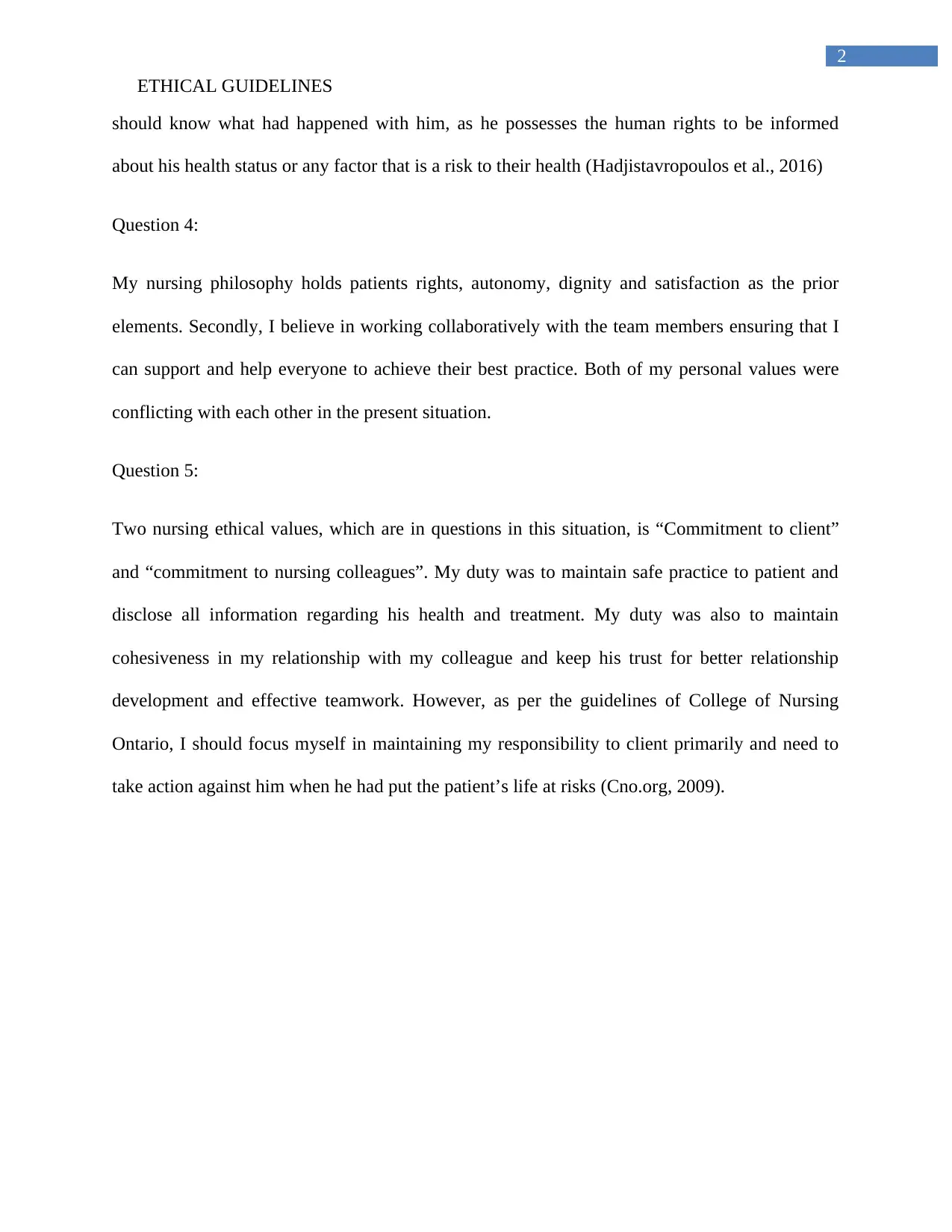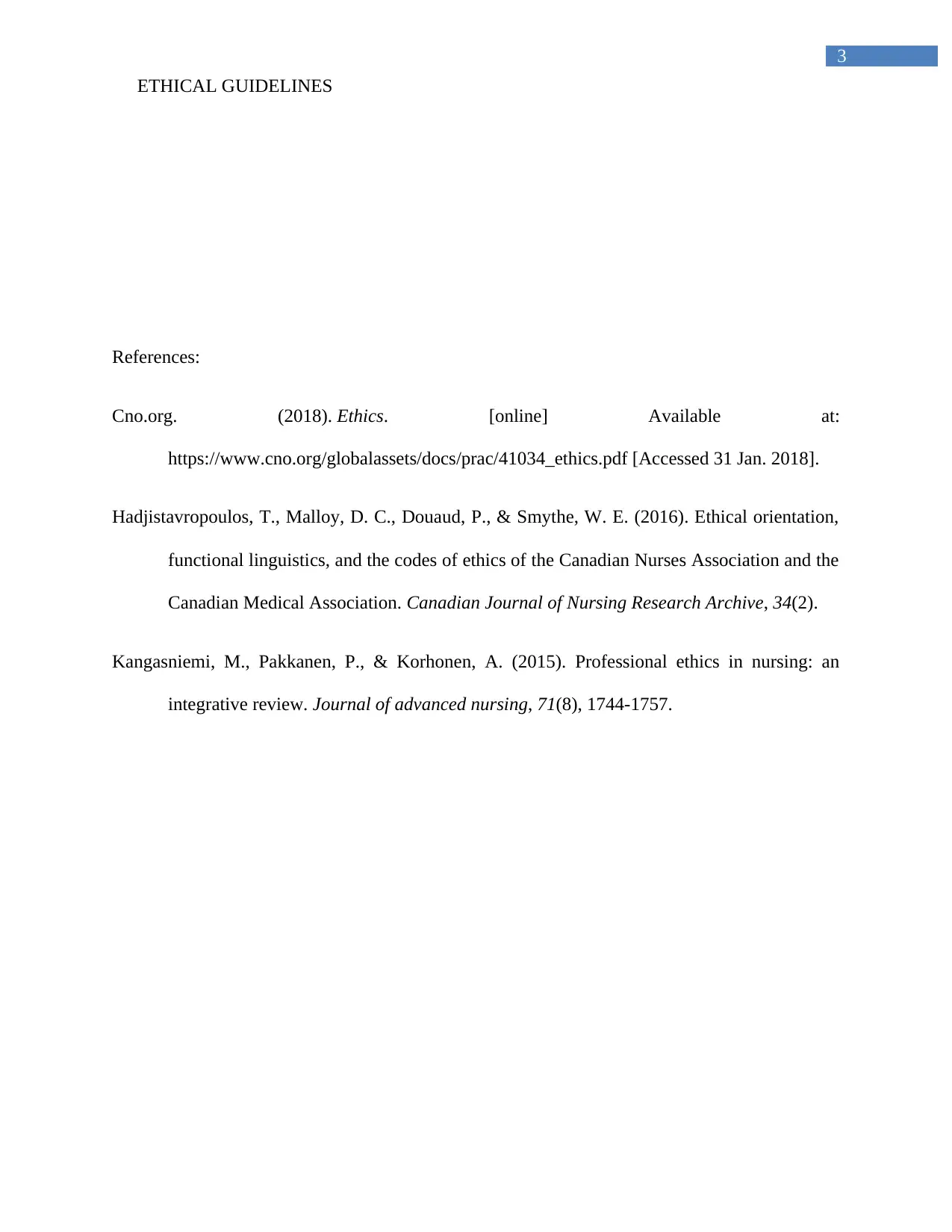Ethical Guidelines in Nursing Practice: A Reflective Analysis
VerifiedAdded on 2020/05/16
|4
|675
|124
Homework Assignment
AI Summary
The assignment addresses ethical guidelines within nursing practice by examining scenarios involving patient health risks due to medication errors and the conflict between maintaining client trust and professional responsibility. It discusses the implications of cultural diversity on medication safety and emphasizes the importance of informed consent regarding health status and potential risks. The scenario highlights a nurse's struggle with balancing personal values of commitment to clients versus colleagues, referencing ethical guidelines from the College of Nursing Ontario that prioritize patient safety. The document references various sources, including the Canadian Nurses Association and CNO guidelines, underlining the necessity for nurses to act responsibly in maintaining safe practices while navigating professional relationships.
1 out of 4











![[object Object]](/_next/static/media/star-bottom.7253800d.svg)